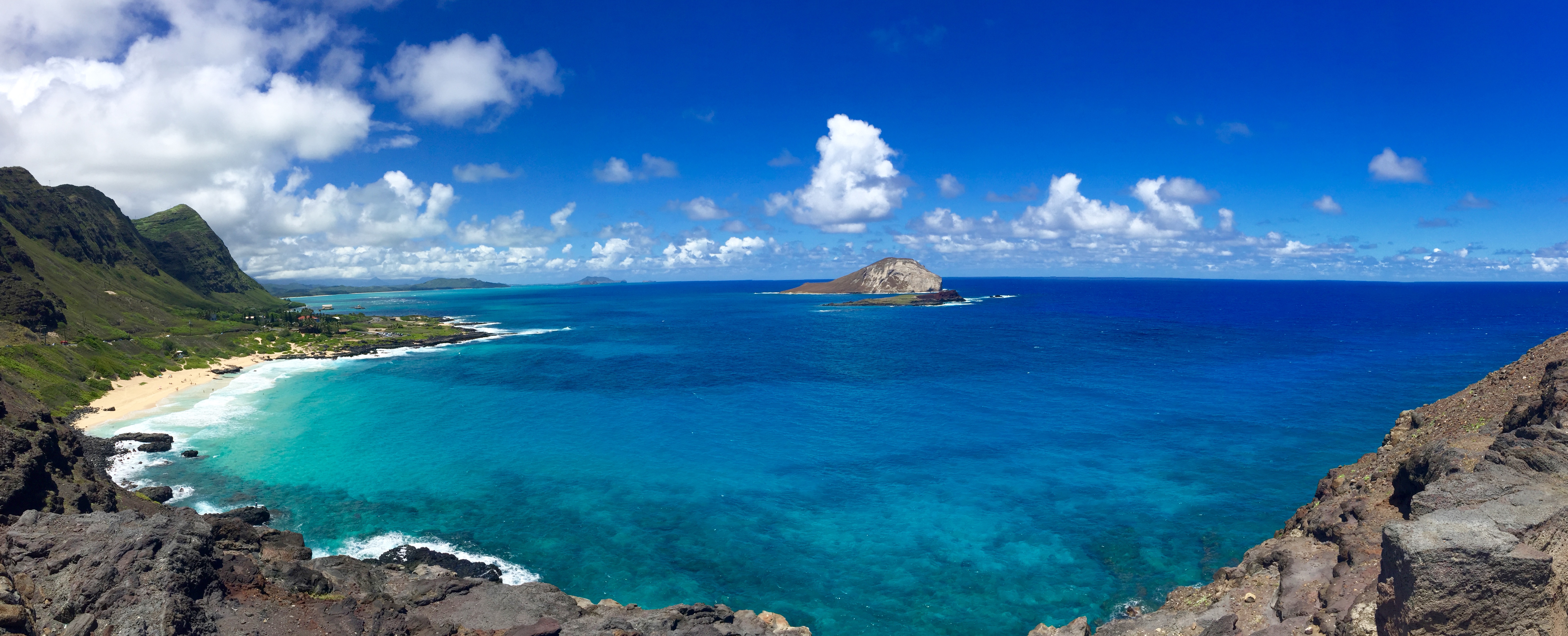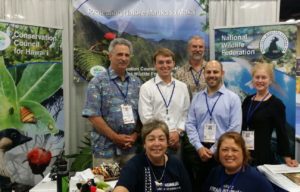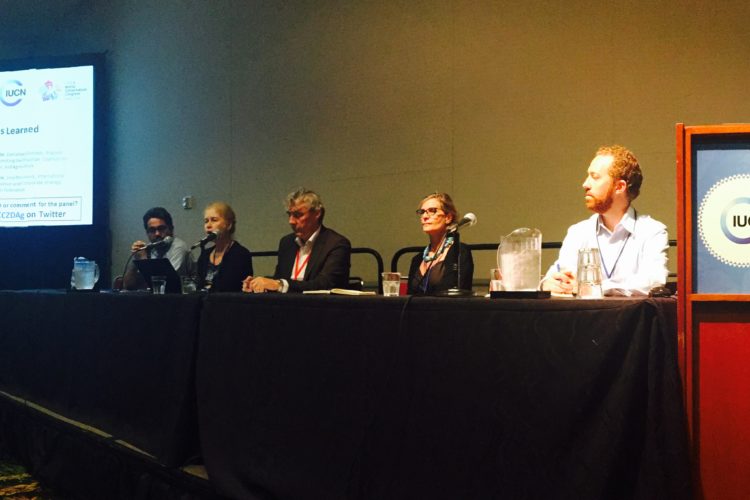We have much more to do and your continued support is needed now more than ever.
Achieving Zero Deforestation Agriculture
This Week in NWF History: IUCN's World Conservation Congress

Since 1936, the National Wildlife Federation has worked to conserve the nation’s wildlife and wild places. As part of our 80th anniversary celebration, we are recognizing important moments in our history that continue to make an impact today.
Founded in part by the National Wildlife Federation in 1948, the International Union for the Conservation of Nature (IUCN) is a member union of government and civil society organizations that provides tools and knowledge showing how human progress, economic development and nature conservation can take place together.
The World Conservation Congress – “the Olympics of the conservation world” – takes place once every four years when IUCN’s membership comes together to vote on resolutions and share best practice with the public and private sectors. This year was the first time that the Congress has been held in the United States. The National Wildlife Federation’s International Wildlife Conservation Program staff joined our Hawaii affiliate, the Conservation Council of Hawaii, in representing the Federation.

Forest conservation and business engagement were both major themes of this year’s Congress, and the International Wildlife Conservation team co-hosted a side event (along with The Forest Dialogue, World Business Council for Sustainable Development, and IUCN) that brought these two themes together. Our panel explored the opportunities, challenges, and lessons-learned from “Zero Deforestation Supply Chains”. The official event page is available here.
Following opening remarks from Moderator Jeff Milder, Chief Scientist at the Rainforest Alliance, NWF’s own Barbara Bramble kicked off the event with a high-level overview of the link between agriculture and forest loss and what companies and governments are doing to sever this link. Agriculture remains the primary driver of deforestation around the world, and every year, nearly 4 million hectares of tropical forests are cleared – an area about twice the size of Massachusetts or New Jersey – for agricultural commodities like cattle, soy, palm oil, and timber, pulp and paper. Collectively, deforestation and agriculture represent almost a quarter of global carbon pollution.

Fortunately, companies and governments – following prodding by civil society – are starting to take action. In 2014, over 50 major companies signed The New York Declaration on Forests, which includes an explicit private sector goal of eliminating deforestation from the production of agricultural commodities by no later than 2020, and ending all deforestation by 2030. In addition to saving invaluable wildlife habitat, full implementation of the Declaration would prevent the release of dangerous carbon pollution equivalent to removing one billion cars from the world’s roads. To date, over 360 companies have now put forth their own zero deforestation commitments.
Of course, defining what “zero deforestation” means in practice can be tricky, and Barbara shared several definitions being used by governments and industry, as well as several examples of what has worked well in Brazil: the Amazon Soy Moratorium and Zero Deforestation Cattle Agreements. While there is still much work to be done to completely sever the link between forest loss and commercial agriculture, there is mounting support for this goal from the private and public sectors. NWF remains optimistic that, through collective efforts, we can achieve an agricultural transformation that safeguards forests and wildlife.

Following Barbara, Marcelo Furtado, Executive Director of the Arapyaú Institute and representative of the Brazilian Coalition on Climate, Forests, and Agriculture shared insights into how a coalition of the willing in Brazil has helped to push the government to get serious about tackling deforestation. Business leaders recognized that Brazilian agribusiness would not remain competitive in global markets unless they were able to achieve low carbon production and ensure that robust social and environmental safeguards were in place. When the necessary regulatory framework wasn’t in operation, these leaders began lobbying for action rather than remaining paralyzed.
In addition to describing the goals of the Coalition, Marcelo also stressed that it is absolutely critical to engage the young people of the world and connect them with forests and farms. Only when they understand the complex connections between agriculture and forests – and know where their food comes from – will they embrace what it really means to achieve sustainability.
Representing the private sector, Dr. Helen Crowley, Head of Sustainable Sourcing Innovation for Kering (the parent company of luxury and lifestyle brands like Gucci, Alexander McQueen, Puma, and Volcom) expanded on the importance of definitions when discussing sustainability and zero deforestation. Building on Barbara’s and Marcelo’s talk, she too stressed that leadership is needed from the private sector, and shared that Kering is striving not only for zero deforestation, but also for no conversion of any natural ecosystem (along with other sustainability criteria like just and fair working conditions). She cautioned that businesses and NGOs should try to frame things more positively. As we move away from agricultural systems that degrade ecosystems, we should be moving toward those that create services and value for people, wildlife, and environment. In this way, we can shift the paradigm from “do less harm” to “do more good”.

Last, but certainly not least, Omer van Renterghem of the Ministry of Foreign Affairs of the Netherlands represented the government perspective. Omer was an architect of the Amsterdam Declaration on palm oil (co-signed by Denmark, France, Germany, the United Kingdom, and Norway), which aims to support the European private sector in achieving 100% sustainable sourcing and trade, and increased traceability of palm oil by 2020. The Declaration stresses Europe’s “opportunity and responsibility to move the global economy to a more sustainable path.”
As the second largest global import market for palm oil, and the home of many large brands, Europe has an important role to play in the global movement toward zero deforestation palm oil. Omer stressed that through coordinated support from European Union nations, combined with additional support from other consumer countries and key private sector actors, we can eliminate deforestation and achieve sustainability in palm oil production.
The session ended on a tough question from the Moderator: How are we doing in our quest to meet the New York Declaration’s goal of eliminating commodity-driven deforestation by 2020? While there were varying degrees of optimism among the panelists about reaching the target on time, there seemed to be universal agreement that setting an ambitious goal had spurred accelerated action among governments and the private sector. To paraphrase a quote from Dr. Crowley: you can’t just have little halfway targets when fighting deforestation – climate, communities and wildlife simply can’t wait.
Learn MoreLearn more about NWF’s international conservation work.






















